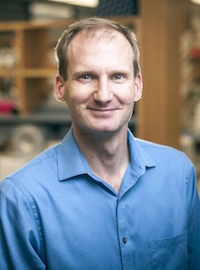
David K. Cortez, Ph.D.
- Associate Director for Basic Science Research
- Co-Leader, Genome Maintenance Research Program
- Hortense B. Ingram Professor of Cancer Research
- Chair and Professor of Biochemistry
Phone
Vanderbilt University Medical Center
613 Light Hall
Nashville, TN 37232-0146
613 Light Hall
Nashville, TN 37232-0146
David K. Cortez, Ph.D.
- Associate Director for Basic Science Research
- Co-Leader, Genome Maintenance Research Program
- Hortense B. Ingram Professor of Cancer Research
- Chair and Professor of Biochemistry
615-322-8547
david.cortez@vanderbilt.edu
Vanderbilt University Medical Center
613 Light Hall
Nashville, TN 37232-0146
613 Light Hall
Nashville, TN 37232-0146


